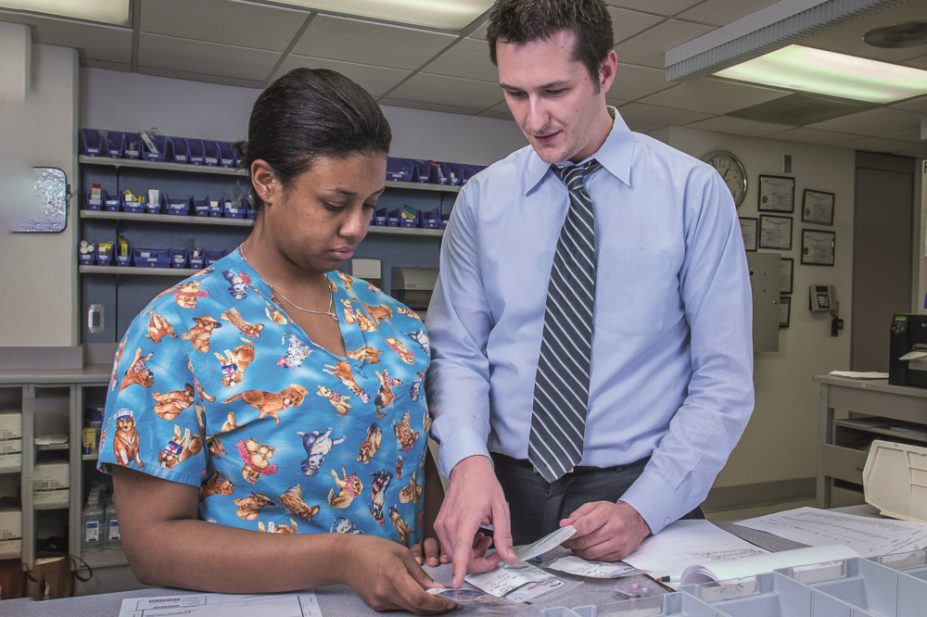
PHILIP RINK JR. / ALAMY STOCK PHOTO
Just 13% of inflammatory bowel disease (IBD) services across the UK have enough pharmacists to meet recommendations for treatment of the conditions, according to a new report.
‘Crohn’s and colitis care in the UK: The hidden cost and a vision for change‘, published by IBD UK — an alliance of 17 professional bodies, including the Royal Pharmaceutical Society — says that pharmacists “have a crucial role in advising the multidisciplinary team on governance of therapeutic drug monitoring”. Pharmacists can, it continues, optimise medication regimes, support patients with medication upon discharge and facilitate shared decision making. It also states that as more new medications become available, the role of the pharmacist in an IBD team will become ever more important.
Patients treated by a team which met the standards for pharmacist involvement are more likely to have been given “appropriate information about potential treatments to help them make informed decisions”, the report says.
According to IBD UK, around 500,000 people in the UK are affected with a form of IBD — the two main ones being Crohn’s disease and ulcerative colitis.
IBD UK’s standards say that IBD leadership teams should include an expert pharmacist, and that inpatients should have their prescribed and over-the-counter medications reviewed by a pharmacist with access to an IBD expert pharmacist. In addition, regular medication reviews throughout their stay, and upon discharge, should be conducted.
Mikin Patel, lead pharmacist in gastroenterology at Imperial College Healthcare NHS Trust, said he was “slightly surprised that we as a profession still have to really show value of what our skillsets are, after decades of being embedded within clinical practice. But, in some ways, I’m not surprised that there are not as many specialist pharmacists within the MDT [multidisciplinary] team, as IBD as a service is just starting to look at this a lot more holistically”.
Pharmacists in the IBD team provide extra skills, Patel said, including medicines management, medicines optimisation and risk management. “Being medicines experts, we understand the pharmacokinetics of the drugs used, [which is] particularly important as the medicines used to treat IBD are predominantly immunosuppressive,” he continued.
Patel added that pharmacists are often the link between between commissioners and secondary care, “and I think we are able to understand local health economy models and how that translates into practice to create effective pathways for better patient access”.
READ MORE: Optimising therapy for inflammatory bowel disease


